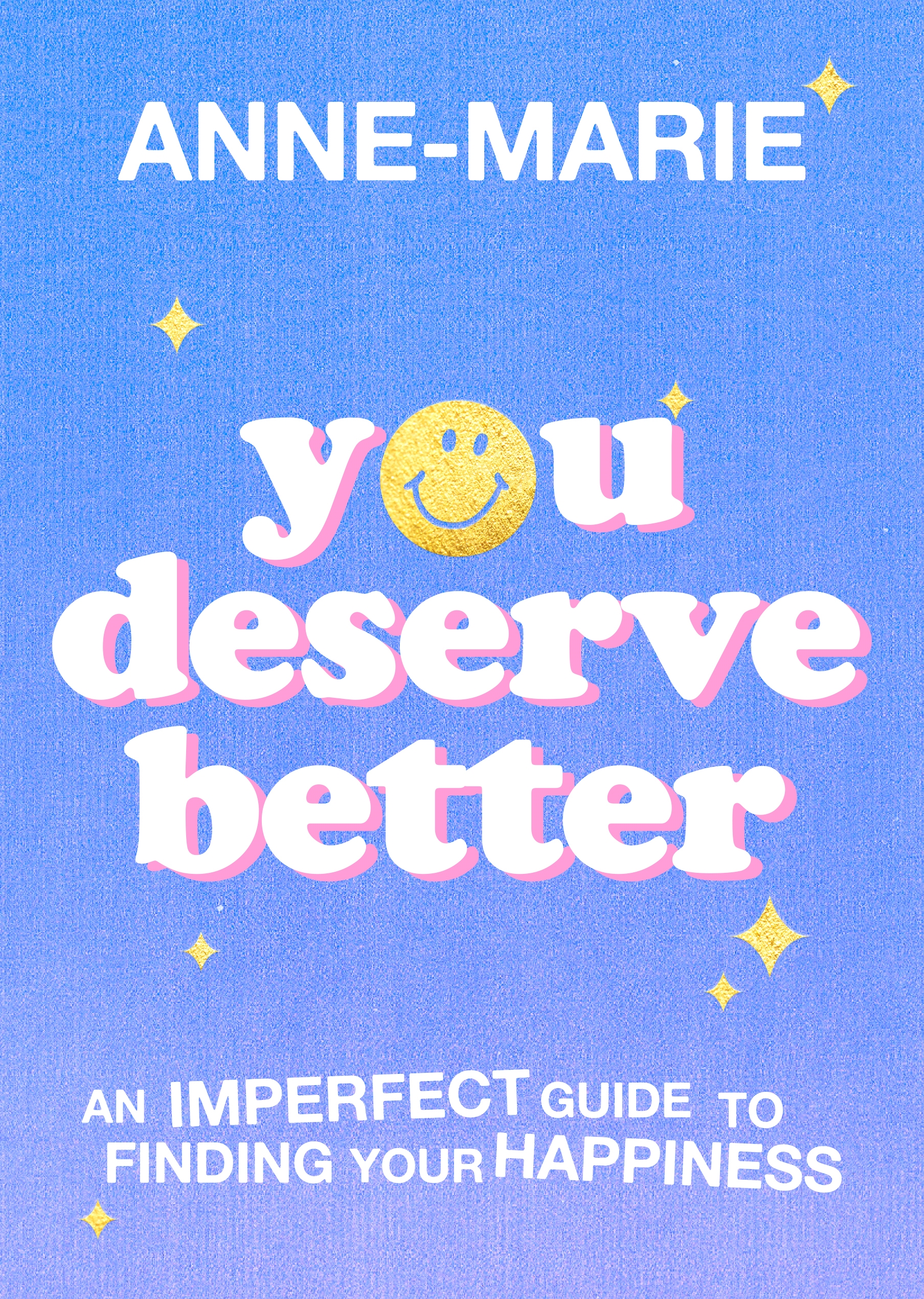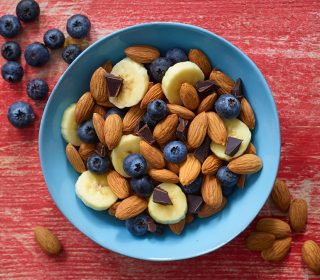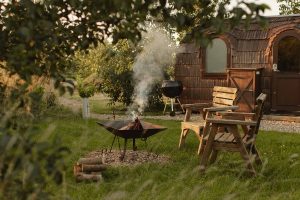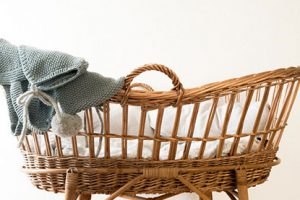Anne-Marie on her anxiety, panic attacks and trust issues: I didn’t understand what was going on with my brain
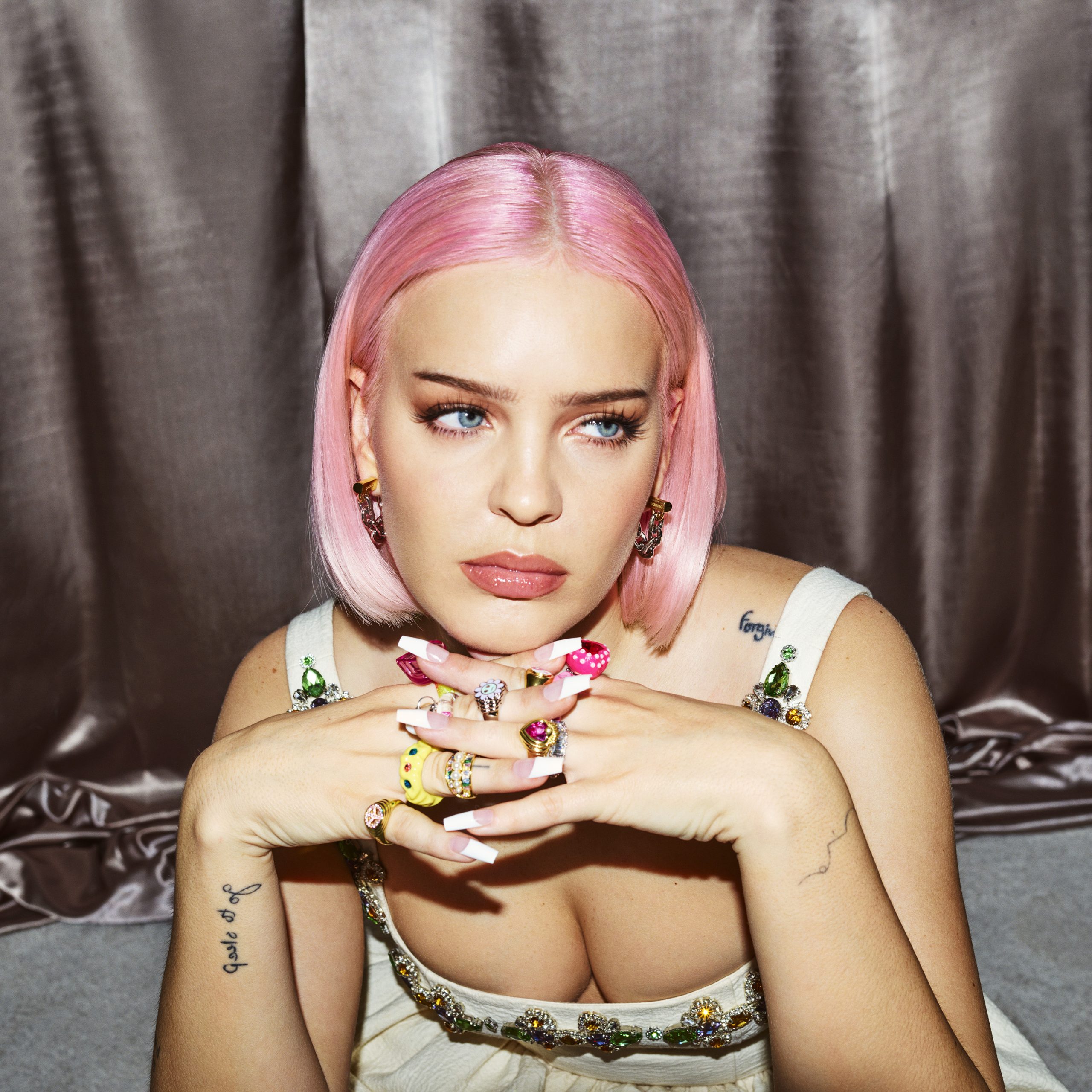
Anne-Marie Rose Nicholson – simply Anne-Marie to you and I – is a woman with the world at her pop star feet. The first person this BALANCE writer’s 7-year-old daughter has ever been excited about her interviewing, at age 30, she’s got smash hits like Rockabye and Don’t Play under her belt, she’s a coach on ITV’s The Voice, best mates with Ed Sheeran (who she appears on Celebrity Gogglebox with) and has, oh, just the 8.6 million Instagram followers. But she’s not like other pop stars. There aren’t a million hoops to jump through, or 17 publicists on the line as we talk, vetoing questions to protect their precious talent’s image and reputation – and, apart from having a great set of pipes, the appeal and the USP of Anne-Marie is, really, that she’s Just Like Us. “I’ve never wanted people to see me as a pop star, I want them to see me as a normal person just like them,” she says. “And I try to be as open as possible.”
Only happy on the outside
Indeed Anne-Marie has made the decision to speak her truth about how – despite those feet having the world at the end of them – she was, until recently, in a dark place. “I’ve always strived to be who I am today. I’ve always wanted to come across as a nice person and approachable and honest, but I didn’t feel it inside. I was happy on the outside but it’s what is on the inside that’s changed really.”
The 30-year-old, who isn’t exactly from showbiz stock – she was raised in East Tilbury, Essex by her builder dad and teacher mum – was healed from years of mental struggles when she discovered therapy in lockdown. And now she’s written a book, part self-help, part memoir, aimed at young folk struggling with their own mental health. Of course, she hasn’t held back. “It was really tough talking about school – not from my perspective but I was anxious imagining my parents reading it because then they’d feel bad for not noticing how I was feeling,” she says.
Shutting down emotionally
Anne-Marie can pinpoint the moment when her mental health first began to suffer, the time that led her to anxiety, trust issues, panic attacks and OCD thoughts – it was at school when she became a social outcast overnight after word got out that she’d spoken on the phone (not cheated, merely had a chat) to one of her then boyfriend’s friends. He dumped her and made her a social pariah among the popular crowd, losing those she thought were her best friends. She shut down emotionally from everyone, even family, and completely withdrew. She stopped speaking at school for fear she might say something to make people hate her even more. “I became pretty mute – it felt safer at the time but, looking back now, it wasn’t. I didn’t tell anyone how I was feeling and I thought that was better for me, because, if no one else knew, then it wasn’t real,” she says. “I didn’t realise that what you go through at a young age – even something that may appear relatively minor – can turn into a big thing when you’re older. I still deal with trust issues”.
She talks to BALANCE about her mental health journey, and the tools that have helped her learn to finally love herself.
Whenever I told people I had anxiety, they were like ‘Why did you choose to be a singer? Very weird choice of career’. But being on stage was my escapism. As soon as I left the stage, the anxiety kicked in. At my lowest points, I couldn’t answer the door or the phone and I couldn’t leave the house to pick up food so I wouldn’t eat. That was a bad place to be.
Joining the music industry was tough because I still didn’t know myself completely. I think if I‘d gone into the industry as I am now, it would have been a different experience but, then, I thought I had to become someone else to be successful. I wanted to be authentic, but I felt like I couldn’t because it wasn’t enough. It’s always been a battle but I’ve realised that having an Essex accent and a crazy laugh is what makes me, me.
My friends loved lockdown because they could have a break, but I was the complete opposite – I didn’t want to stop because I didn’t want to think, I needed to distract myself from my thoughts. So not touring and not being out of the house was scary. I struggled for a while but now I enjoy my own space and, if we hadn’t been locked down, I wouldn’t have found therapy, and that changed everything.
I became vegan overnight after watching the documentary What The Health [on Netflix] – I’m so dramatic, that’s just me all over. The food I was eating before wasn’t doing me good, my belly was always in pain. At one point I lived off cream cheese sandwiches. I’d go on tour and everyone else would go out to eat and I would stay in and eat a chicken salad. I’d miss out on stuff. Now, I actually enjoy food.
When I got into the music industry, I didn’t understand what was going on with my brain. I couldn’t say to you that I was battling with anxiety. I was just thinking ‘Oh this is just how everyone feels, I guess this is just life’. It wasn’t until I figured it out recently that I could see how much I was struggling.
I’ve had panic and anxiety attacks – I stay completely still and curl into a ball – but the most terrifying thing was when I experienced dissociation. I thought I was dying. The only way I can describe it is that half of you is here and you’re telling yourself everything is okay and to calm down, and the other half is gone. You’re fighting yourself, trying to pull yourself back down to earth. But you’re disappearing. You almost feel like you need to call an ambulance, but luckily I had people around to make sure I was OK.
Therapy has helped me so much more than I can even describe – people always say ‘What’s the one thing you’ve learned?’ but there isn’t one thing, there are so many little conversations that help. I have OCD thoughts and I’ll think ‘If I don’t move this bottle here then my family is going to die’. My therapist will explain these thoughts and help me put them into perspective. Now I know that it’s just my own worry and my fear of death, I can understand it and think more rationally about it.
My trust issues meant that, whenever I met someone, I’d think they were bad until they proved they were good. Therapy made me realise that not everyone is a bad person. I was trying to protect myself, but it’s a really stressful way to be so I’m slowly learning, instead, that people are good until proven to be bad. It’s a better way of living.
It’s become easier to take compliments the more I’ve started to love myself – before I would think ‘that’s an absolute lie, I know I’m ugly’. I understand negativity bias now, too. If I see a bad comment on social media, I delete it, block the person or just laugh about it. For so long I was affected by it, it’s a hard lesson to learn and it took a while but I’m finally there.
When you feel bad about yourself, you’re just looking for other people to confirm how you feel. I’d see a comment saying ‘You look crap’, and I’d be like ‘yep, they’re right and now I’m gonna think about that all day’. Now, if someone says I look crap, I’ll be like ‘that’s funny because I feel great’. I can’t tell you how much learning to love yourself from inside changes everything on the outside. It all comes from the power of talking to people, and you don’t always need someone saying ‘oh you feel like this, so this is what that means’. Sometimes when you tell someone how you feel, you learn something about yourself just by saying it out loud.
I want people to see the real me, I don’t want my body editing – when I was younger, the problem was I wanted to look perfect. I was happy to change my body because it made me look like someone who I thought deserved to be on a magazine cover. I was happy with airbrushing because I wasn’t happy with myself. Now I’m the complete opposite. I try to only work with people that don’t do airbrushing because I don’t want kids to see people in magazines and feel like they have to be that person. I want them to see real people.
Confidence isn’t ‘will they will like me?’, confidence is, ‘I’ll be fine if they don’t’. The older you get, the less you care about what people think of you. I was always like ‘Oh I can’t wait to get older, and now I’m like ‘Why do I have to wait until I get older?’ The earlier you can feel like that, the better. It’s not like an ‘I don’t give shit’ kind of vibe, it’s more, it doesn’t matter. What matters is how you feel.
If I’m having a hard day, I go for a walk in the forest, which used to sound like such an old thing to do, but it makes me feel so peaceful. I also have mindful tea – just take a moment to pour yourself a cup of tea but, not just that, watch the steam coming out of the kettle, touch the hot mug, smell the tea. Just be present for a moment.
I’ve found my happy place. I’m growing tomatoes and I’m happy when one ripens to red. .Seeing my family and friends healthy makes me happier than buying a nice bag, Though, to be fair, when I get some new sunglasses, that does make me pretty happy, too…
You Deserve Better by Anne-Marie
is published by Orion Spring in
hardback at £16.99 and is out now





